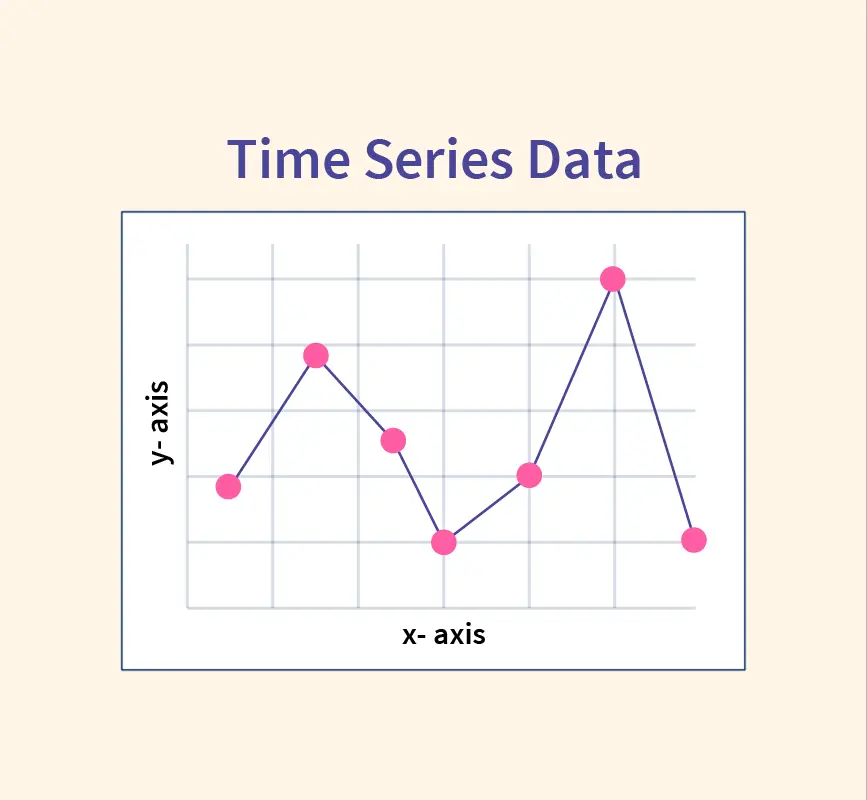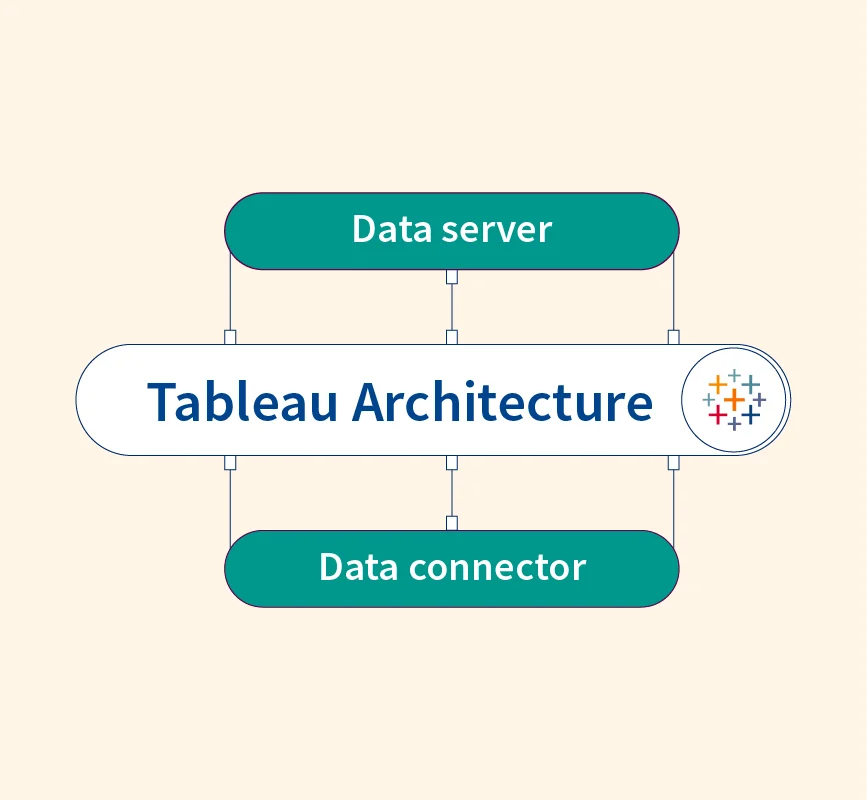Data Science and Computer Science are two of the most sought-after fields in today’s tech-driven world. Although both involve technology and problem-solving, they serve different purposes. Data science focuses on extracting insights from data, while computer science emphasizes building systems and software that power various technologies.
The increasing demand for skilled professionals in both domains has led to exciting career opportunities. Organizations rely on data science to make data-driven decisions and use computer science to create the infrastructure needed for digital transformation. Understanding the differences between these two fields can help aspiring professionals make informed career choices.
What is Data Science?
Data science is an interdisciplinary field that focuses on extracting meaningful insights from large datasets to support informed decision-making. It combines techniques from statistics, mathematics, machine learning, and programming to analyze and interpret data patterns. Data science involves cleaning, processing, and analyzing raw data, often using advanced algorithms and tools.
The core objective of data science is to uncover hidden trends and make predictions or forecasts through predictive modeling and machine learning. It plays a critical role in applications like recommendation systems, fraud detection, and customer segmentation. Data scientists work to interpret results that can drive business strategies, providing actionable insights from complex data structures.
The field’s primary focus is data-driven problem-solving, ensuring businesses, governments, and research institutions can leverage data effectively for better decision-making and operational efficiency.
What is Computer Science?
Computer science is the study of computational systems and the theories, algorithms, and programming techniques that drive them. It covers a broad range of topics, including software development, algorithms, systems architecture, networking, and artificial intelligence. This field focuses on building applications and infrastructure that form the backbone of modern technology.
The primary objective of computer science is to design efficient systems, software, and applications that solve complex problems. Computer scientists develop and optimize algorithms, ensuring systems perform tasks effectively. They also design operating systems, databases, and software tools that power industries ranging from healthcare to gaming and cybersecurity. This field emphasizes both theoretical knowledge and practical implementation to create scalable, secure, and user-friendly technologies.
Key Differences Between Data Science and Computer Science
1. Core Focus and Objectives
The core objective of data science is to derive meaningful insights from data by analyzing patterns and trends. This field emphasizes data-driven decision-making, where machine learning models and statistical methods are used to predict outcomes and solve business challenges. Data science transforms raw data into actionable insights that guide strategies across various industries.
In contrast, computer science focuses on creating computational systems and software applications. The goal is to develop reliable and scalable technology, including software tools, algorithms, and systems that power the digital infrastructure. While data science interprets data, computer science builds the systems needed to collect, process, and analyze it. Both fields complement each other, yet their primary objectives differ—one focuses on insights, the other on building tools to generate and implement those insights.
2. Key Areas and Specializations
Data science encompasses specialized fields like machine learning, data engineering, and artificial intelligence (AI). Machine learning focuses on algorithms that improve automatically with experience. Data engineering manages data pipelines for smooth analysis, while AI applies intelligent systems in areas such as recommendation engines and robotics.
Computer science offers equally diverse areas, including software development, cybersecurity, and systems architecture. Software engineering focuses on building programs for end-users, while cybersecurity involves creating secure systems to protect data. Systems architects design the frameworks that allow technologies to operate seamlessly. Each discipline provides distinct specializations aligned with its objectives—data science with analytics and modeling, and computer science with software creation and system design.
3. Tools and Technologies
Data science relies heavily on Python, R, SQL, Hadoop, and Jupyter Notebooks. Python and R are popular programming languages used for data manipulation and building machine learning models. SQL is essential for managing databases, while Hadoop processes large-scale datasets. Jupyter Notebooks provide an interactive platform for writing and testing code.
In comparison, computer science professionals use C++, Java, Git, Docker, and Linux. C++ and Java are core programming languages for developing complex software. Git offers version control, helping teams collaborate effectively. Docker ensures consistent deployment of applications across environments, and Linux serves as the backbone for operating systems and server management. These tools highlight the technical focus of each field—data science on data analytics, and computer science on software development and systems management.
4. Educational Path and Skills
A data science education focuses on developing expertise in statistics, machine learning, and programming. Analytical thinking, proficiency in Python, and familiarity with data visualization tools are essential. Many data scientists also pursue certifications in fields like artificial intelligence and data analytics to deepen their knowledge.
In computer science, students learn programming languages, algorithms, and systems design. Skills like problem-solving, mathematical aptitude, and coding proficiency are crucial. Computer science education also emphasizes theoretical knowledge alongside practical development, covering areas such as operating systems, databases, and computer networks. The differences in skills reflect the practical needs of each discipline—data science emphasizes analytical methods, while computer science builds technology infrastructure.
5. Career Paths and Industries
Data science professionals take on roles like Data Scientist, Data Analyst, AI Engineer, and Data Engineer. These roles are critical in industries such as finance, healthcare, retail, and e-commerce, where insights from data drive innovation and strategy. Data scientists help businesses understand customer behavior, predict trends, and improve decision-making.
In computer science, common career paths include Software Developer, Systems Engineer, and Network Administrator. These professionals build and maintain the systems used across IT, telecommunications, and cybersecurity sectors. For example, software engineers develop applications that power online platforms, and network administrators manage secure communications networks. Both fields offer distinct career trajectories with significant opportunities for growth.
6. Impact and Applications
Data science plays a vital role in industries by enabling predictive analytics and real-time decision-making. For instance, retailers use data science to recommend products to customers, while financial institutions rely on it for fraud detection and market forecasting. It helps companies optimize performance through deeper data-driven insights.
On the other hand, computer science powers the infrastructure and systems that support these solutions. It plays a pivotal role in developing software applications, secure networks, and scalable platforms essential for business operations. Both fields are essential for the modern economy, with data science focusing on insights and computer science delivering the technology that makes those insights actionable.
Career Prospects in Data Science
Job Roles and Responsibilities
Data Science offers several exciting roles, including Data Analyst, Data Engineer, and Data Scientist. Data Analysts focus on interpreting data to identify trends, create reports, and provide actionable insights. Data Engineers are responsible for building and maintaining data pipelines that facilitate the seamless flow of data across systems. Data Scientists combine programming, statistics, and machine learning to develop predictive models and solve complex business problems. Each of these roles requires proficiency in Python, SQL, and data visualization tools, along with a deep understanding of business needs to provide solutions aligned with organizational goals.
Salary Potential
Salaries in Data Science vary across countries but generally remain competitive. In the United States, Data Scientists earn between $95,000 and $130,000 annually, with Machine Learning Engineers earning even higher due to their specialized skills. In India, Data Scientists earn around ₹8,00,000 per year, while in European countries like Germany, the average salary is approximately €60,000 annually. Salaries also depend on the role, with Data Engineers typically earning more than Data Analysts. Experience, location, and industry type play a significant role in determining salary levels across different geographies.
Industry Demand
The demand for Data Science professionals continues to grow across industries such as healthcare, finance, and e-commerce. Organizations rely on data to enhance operational efficiency, make data-driven decisions, and predict customer behavior. As companies increasingly adopt AI and big data technologies, the need for skilled data professionals is higher than ever.
Career Prospects in Computer Science
Job Roles and Responsibilities
Computer Science offers diverse roles, including Software Engineer, System Architect, and Developer. Software Engineers design, build, and maintain software applications, ensuring that systems operate efficiently. System Architects focus on creating the overall framework for IT systems, determining how software and hardware components interact. Developers, on the other hand, write and test code to develop new programs or maintain existing ones. These roles require expertise in programming languages such as Java, C++, and Python, along with knowledge of software design principles and frameworks, ensuring smooth operation and scalability of applications in various industries.
Salary Potential
Computer Science professionals enjoy competitive salaries globally. In the United States, Software Engineers earn between $85,000 and $120,000 per year, depending on their experience and the company. In India, the average annual salary for Software Engineers is approximately ₹6,00,000, while in Germany, professionals earn around €55,000 per year. System Architects, due to their advanced skills and responsibilities, typically earn higher salaries, reaching up to $140,000 annually. Specialized roles such as cybersecurity experts also command higher pay due to the increasing importance of network security in the digital age.
Industry Demand
Computer Science professionals are in high demand across industries such as IT, gaming, and cybersecurity. As businesses accelerate digital transformation efforts, the need for skilled engineers and developers is growing rapidly. The cybersecurity sector, in particular, is seeing increased demand as companies prioritize securing their networks and sensitive data from cyber threats.
Data Science vs Computer Science: Similarities and Differences
While Data Science and Computer Science differ in scope, they share some common ground. Both fields require strong programming skills, with Python being a popular language in both domains. Additionally, both involve problem-solving and analytical thinking, essential for developing algorithms or extracting insights from data.
However, their primary focus diverges. Data Science emphasizes analyzing large datasets, using machine learning and statistical methods to derive actionable insights. It aims to predict trends, identify patterns, and support decision-making. In contrast, Computer Science centers around designing and building software systems, focusing on algorithms, computational theory, and infrastructure development.
The tools also differ. Data Science professionals rely on data-centric tools like Python, R, SQL, and visualization platforms such as Tableau. Computer Scientists use programming languages like C++ and Java, alongside development environments like Visual Studio. While Data Science solves data-driven challenges, Computer Science builds the underlying technologies that support these processes.
Which One Offers a Better Future: Data Science or Computer Science?
Both Data Science and Computer Science offer promising futures, driven by evolving market trends and emerging technologies. The rapid adoption of artificial intelligence (AI), big data, and machine learning has amplified the demand for Data Science professionals. Data Science is particularly crucial in industries like healthcare, finance, and e-commerce, where predictive analytics and personalized services shape the future.
At the same time, computer science remains the foundation of software development, cloud computing, and cybersecurity. With the growing need for secure digital infrastructure and innovative software, Computer Science professionals are indispensable in industries such as IT, gaming, and telecommunications.
Career growth opportunities are abundant in both fields. Data Science professionals can progress into specialized roles such as AI engineers and data architects, while Computer Science experts can evolve into system architects or cybersecurity specialists. The choice between the two ultimately depends on personal interests—whether one prefers working with data insights or building technological solutions.
Conclusion
Both Data Science and Computer Science offer rewarding career opportunities, each with unique strengths. Data Science is ideal for those interested in data analysis, machine learning, and predictive modeling, while Computer Science suits individuals passionate about software development and system design. Ultimately, choosing the right path depends on personal interests and long-term goals.
References:


